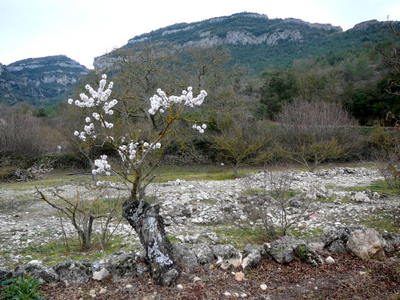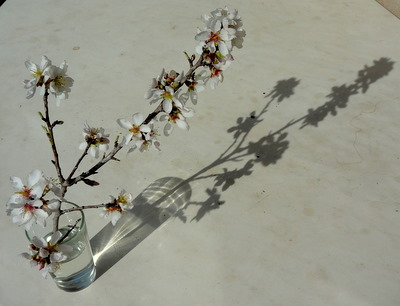The last service we will receive from the microbial community that stays within us throughout our life since we are colonized at birth -in the womb we were microbe free- will be to be consumed by it when we die. This statement by Dr. J. Gordon in the paper quoted in the last post, strikes as shocking. But soon we realise that nature is sage, and features cleaning procedures when this complex process that is human life is no longer feasible. For a 70 year old life, the body will have renewed around 7 times its 1013 cells; excluding the microbes that go along with it. We can think of the body as a community of 1013individuals lasting 7 generations ( the average age for our cells being 10 years as I commented two posts ago). A noteworthy figure, the whole mankind along 2.500 generations will amount “just” around 100.000 million people, 1011.

Regarding housecleaning and recycling, our environment of artificial items is not as effective as nature. When we die we leave behind a heap of things, furniture, table service, wear, papers, books, tools, photo albums, video tapes, letters, frames. And somebody will have to be responsible for getting rid of all. Those who had to empty the apartment of a deceased friend or relative can tell that this is a hard job. What could we do in order to ease things for the people to come? Get rid of unnecessary things in advance? Perhaps there are letters o writings that we want to keep while we are alive but are so private that we would not like them to be read by strangers. What do we think it would be worth preserving? Should we point where do we keep legal documents?
New digital media present a new version of the same problem. Today we don’t leave behind shoe boxes filled with old letters and pictures, or notebooks with personal diaries and travelogues, folders with drawings, etc; we leave files. Files in our hard drive, files in mail servers, in social networks, posts in blogs, pictures in Flickr or Picasa. We still don’t have a clear idea about what we should do with them. Should everything be preserved ? Or everything deleted after a certain time has elapsed? Maybe there are valuable websites that are going to disappear when a certain domain or hosting is no longer paid. Some of them may still be retrieved through backup copies from Google or the internet archive that regularly takes snapshots of some sites. Who is entitled to claim for a certain digital legacy? Imagine the case of a writer or thinker that dies without heirs. Can Scholars ask for hard drive an email access? Perhaps today Kafka would have given his laptop to Max Brod asking him to delete everything after reading.
But in most cases, our contents are not the equivalent of a Proust manuscript, an Egon Schiele sketch or a Clifford Brown recording. So, when present users start to die, gigas and gigas of digital garbage will be left. In the “offline” world, our heirs will have access to our belongings, apartments or bank accounts, either because we had given it beforehand, either because they receive a legal entitlement afterwards. What can we do in the digital world? We can subscribe Legacylocker services where we can set the recipients who are going to receive the passwords to our accounts once our decease is verified. But does this solve the problem? What are they going to do? Backup it? Delete it? Browse it all and make a selection? It’s impossible to dedicate to this task so much time. And what is to be done with social networks accounts? Facebook offers to memorialize it if someone proves that the user has passed away. This means that further logins are prevented and access limited to confirmed friends. The wall remains open so that friends and family can leave posts in remembrance.
For those really provident, my wonderful life allows you not only preparing your funeral, writing your obituary, and designing your headstone (!), but also writing letters to people you love, listing where your stuff is, listing your favorite music, memories, photos, etc. and give instructions about taking care of your pets. I cannot help thinking that, if we really want to communicate something to somebody, or share our musical, art or cooking discoveries, we could start doing it right now while we are still alive, there is no need to keep waiting our friends and relatives for an email with a link to our digital legacy when we will have passed away. On the other hand, I have serious doubts about whether we should want to leave a permanent legacy, as if this could help in relieving our anxiety for the fact that our life is ephemeral. Perhaps it’s better to exit discreetly, without loud noise and leaving no burdens behind. My daughter said once that our imprint could be like that of a rain that has fallen. I like this idea very much, an easy rain, that wets the soil, waters the plants, and leaves no visible trace. I’d rather be like a rain that comes and goes, than a plastic bottle that is going to stay forever.

An appropriate post for All Saints day! perhaps this is going to be a series following last year’s post, Death row, life row. Also related: Extending life span, New runners, last steps.


























